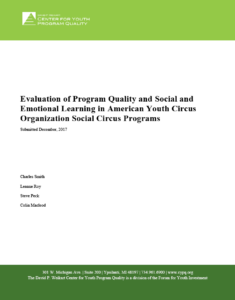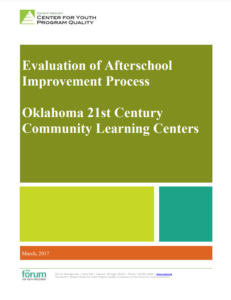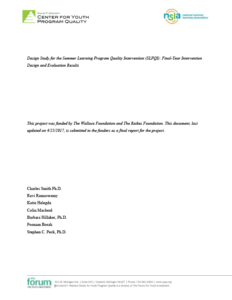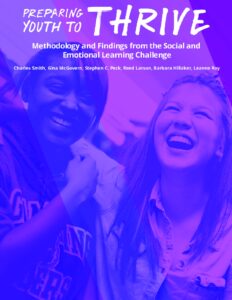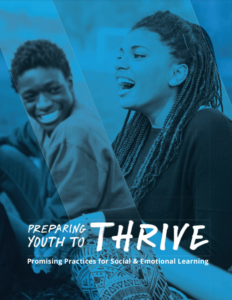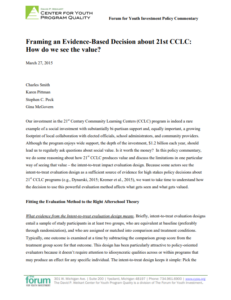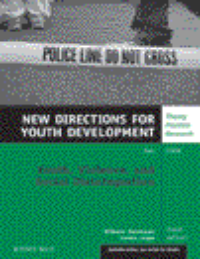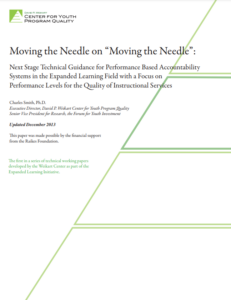This quality-outcomes study was designed to both (a) describe performance in Seattle Public Schools (SPS) summer learning programs in ways that are useful to staff and (b) provide evaluative evidence (i.e., validity) for an instructional model that includes challenging academic content and responsive instructional practices.
Evaluation of Program Quality and Social and Emotional Learning in… Social Circus Programs
This report exemplifies use of the suite of SEL measures and benchmarks in the American Youth Circus Organizations network.
Evaluation of Afterschool Improvement Process: Oklahoma 21st Century Community Learning Centers
This paper describes validity of QIS performance measures and longitudinal change over four years in Oklahoma 21st CCLC programs.
Design Study for the Summer Learning Program Quality Intervention (SLPQI)
This paper describes implementation and outcomes for QIS in school-based summer learning programs in multiple cities.
Preparing Youth to Thrive: Methodology and Findings from the SEL Challenge
This technical report describes methodology and findings for (1) best-practice SEL standards, (2) validation of a suite of SEL performance measures for use in QIS, and (3) performance benchmarks for out-of-school time programs focused on building SEL skills with vulnerable children/youth.
Preparing Youth to Thrive: Promising Practices for Social Emotional Learning
The guidebook describes SEL standards and organizational and curriculum features for a set of eight exemplary SEL programs.
Framing an Evidence-Based Decision About 21st CCLC
In this policy commentary, we do some reasoning about how 21st CCLC produces value and discuss the limitations in one particular way of seeing that value – the intent-to-treat impact evaluation design.
Afterschool Quality
This research article discusses efforts to define and improve the quality of afterschool services, highlighting areas of agreement and identifying leading-edge issues. We conclude that the afterschool field is especially well positioned to deliver high-quality services and demonstrate effectiveness at scale because a strong foundation has been built for continuous improvement of service quality.
Moving the Needle on “Moving the Needle”
This paper introduces the nomenclature of performance-based accountability systems (PBAS) to the expanded learning field, provides a policy case study for a countywide system in southern Florida and uses data from that system to explore the issue of quality thresholds. We present an expanded design standard to guide development and improvement of PBAS policies and further develop a theory of lower-stakes accountability to guide effective use of incentives of various types. Findings suggest that (1) the PBAS framework defines critical concepts and improves our ability to describe existing quality improvement systems, (2) the Youth Program Quality Assessment (Youth PQA) can be used to produce a program rating of sufficient reliability for use in a PBAS, and (3) that the Palm Beach County PBAS design is an exemplar for expanded learning policies.
Measuring Youth Skills in Expanded Learning Systems: Case Study for Reliability and Validity of YDEKC Skill Measures and Technical Guidance for Local Evaluators
This paper uses pattern-centered methods to increase the usefulness of information available from survey-based skill measures, with a focus on using survey-based skills measures to detect skill change over time.

